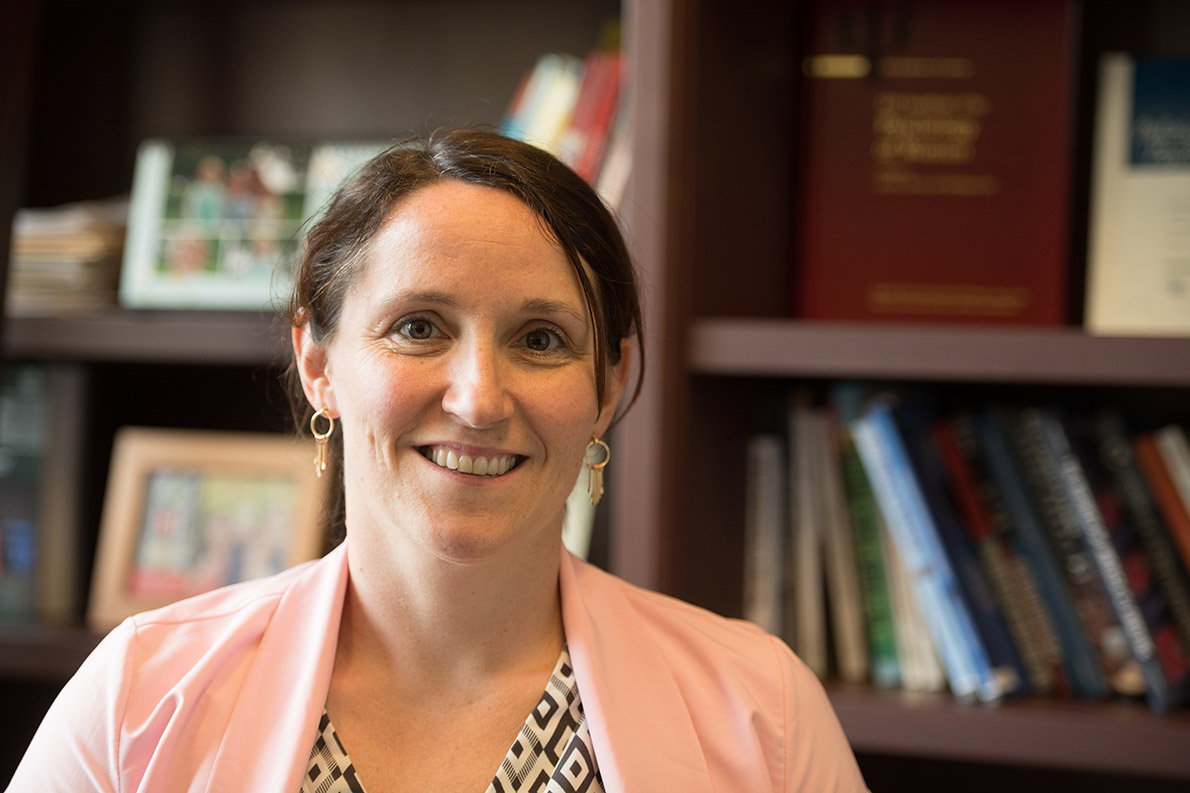
Political science study in children demonstrates 100-years of women’s suffrage is not enough to close gap political engagement

Ratified on Aug. 18, 1920 and certified Aug. 26, this year marks the 100th anniversary of the 19th amendment to the U.S. Constitution protecting women’s right to vote, yet women and girls still lag behind men and boys when it comes to interest and engagement with politics. Based on research studying children’s views of politics by Angie Bos, associate professor of political science at The College of Wooster, and her collaborators, this disengagement begins at an early age, and they’re calling on adults to address the way politics are portrayed to young girls.
In an article published by, PS: Political Science and Politics, a journal of the American Political Science Association, Bos and faculty collaborators from liberal arts colleges and universities, share their research into the political interest and ambition of children ages 6 to 12 and how it relates the continued gap between girls and boys and their impressions of their political prowess. The article, “100 Years of Suffrage and Girls Still Struggle to Find their “Fit” in Politics,” ran in the journal’s symposium on “Women’s Political Involvement in the 100 Years since the Nineteenth Amendment.” While publications like PS and political scientists in general have a thorough understanding of the inequalities of adult women and men and their participation in politics, the work with children by Bos and her colleagues “shows these differences originate at very young ages,” said Bos. While the hundred-year mark for women’s suffrage is a milestone, “our work underscores that there is so much work to be done to fully achieve gender equality in politics,” Bos added.
In the study, completed during the fall of 2017 and winter of 2018 with the help of numerous Wooster students and other volunteers, 1,600 children answered survey questions and responded in interviews about their interest and excitement about politics, government, history and jobs in the field. The study showed that “compared with boys, girls are less interested in politics generally and less interested in political careers specifically.” The article notes that “simply adding women to the political sphere a century ago by granting them suffrage rights did not result in fundamental changes to political institutions.” Looking toward the next step in this research, Bos and her colleagues suggest, “It falls to adults to address socialization processes in order to engage girls more fully in politics.”
That next step focuses on curricular interventions that can work to address the gap between boys’ and girls’ interest in politics in the same way that the STEM movement has emphasized education in the fields of science, technology, engineering, and mathematics. “Work in STEM suggests a need to convey the ways politics and political careers help to achieve goals such as collaboration,” said Bos who notes that “more research is needed to define exactly what messages will be effective in these curricula.” In addition to conducting new research to this end, Bos and her collaborators are currently commissioning a comic/activity book to stimulate girls’ interest in politics and political careers with funds from winning the Elsie Hillman Prize for Research on Women and American Politics last year.
Posted in Faculty, News on August 18, 2020.
Related Posts
Related Areas of Study
Political Science
The study of power, with concentrations in U.S. politics, international relations, political theory and comparative politics.
Major Minor

